Top 10 Learning Management Systems (2026): Best AI LMS for Training Providers

TL;DR
- What it enables: Centralized platform for creating, delivering, and managing online educational courses and training programs
- What it includes: Course management, learning portals, automation, gamification, multilingual interfaces, and robust reporting tools
- Key elements: User-friendly interfaces, integration capabilities, customization options, tracking tools, and scalable pricing models
- Top 10 for 2026 include: Disco LMS, TalentLMS, iSpring Learn, Absorb LMS, Moodle, Docebo, Blackboard Learn
- Why it matters: Reduces training costs, enables remote learning, improves compliance tracking, and enhances learner engagement
What is a learning management system (LMS)?
A Learning Management System (LMS) is a comprehensive software solution designed to facilitate the creation, delivery, and management of online educational courses and training programs.
It serves as a centralized platform that streamlines the educational process by organizing course content, enabling instruction, and tracking learner progress.
Originating from the e-learning movement, LMS is now essential in both educational and corporate environments. They serve as a centralized hub for organizing course content, facilitating instruction, and tracking learner progress.
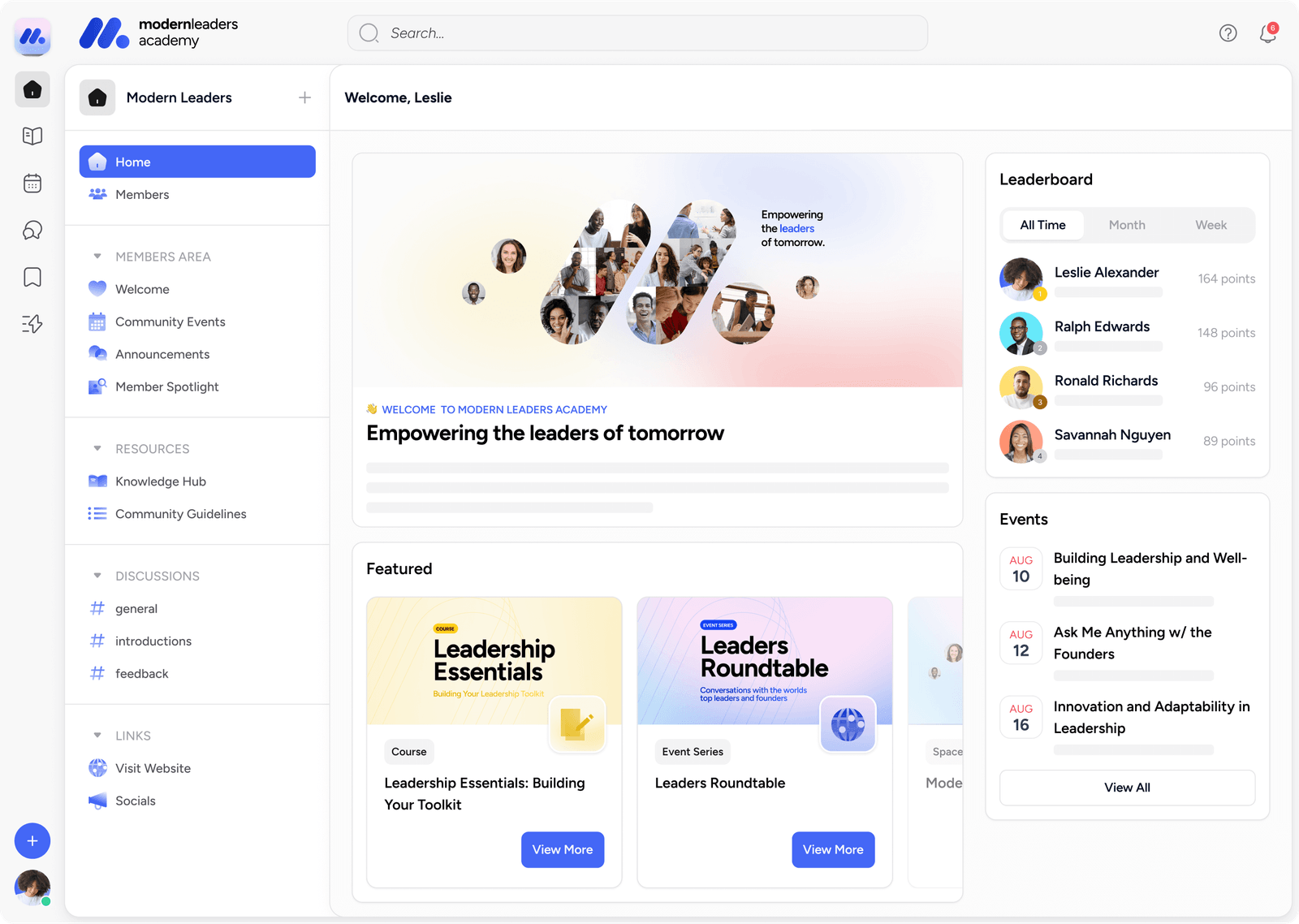
Some learning management system examples include various platforms that enhance the learning experience.
Key features of LMS include:
- Course management
- Learning portals
- Automation
- Gamification
- Multilingual interfaces
- Robust reporting tools
These functionalities support both synchronous and asynchronous learning, providing flexibility and convenience for learners.
Integrating various instructional materials and assessment tools, LMS platforms enhance the learning experience and streamline administrative processes.
Using an LMS in educational or corporate settings offers numerous advantages. Educational institutions can enable remote learning, reduce costs, and promote continuous learning.
Corporations benefit from delivering online courses, tracking employee progress, and maintaining organized training records. Ultimately, an LMS fosters effective and efficient learning environments.
A brief history of learning management systems (LMS)
The history of Learning Management Systems (LMS) dates back to the 1960s when the first computer-based training programs were developed. These early systems laid the groundwork for modern e-learning by introducing the concept of using technology to facilitate education.
Over the decades, LMS platforms have evolved significantly, driven by technological advances and educational and corporate training needs changes.
In the 1990s, the internet revolutionized LMS by enabling web-based learning, making it more accessible and interactive. This era saw the emergence of platforms like Blackboard and Moodle, which offered more comprehensive features for course management and learner engagement.
The 2000s brought further advancements with the integration of multimedia content, improved user interfaces, and enhanced tracking and reporting capabilities.
Fast forward to 2026, modern LMS platforms have transformed into sophisticated systems leveraging cutting-edge technologies. Today's LMS is characterized by AI, mobile learning, and personalized learning paths.
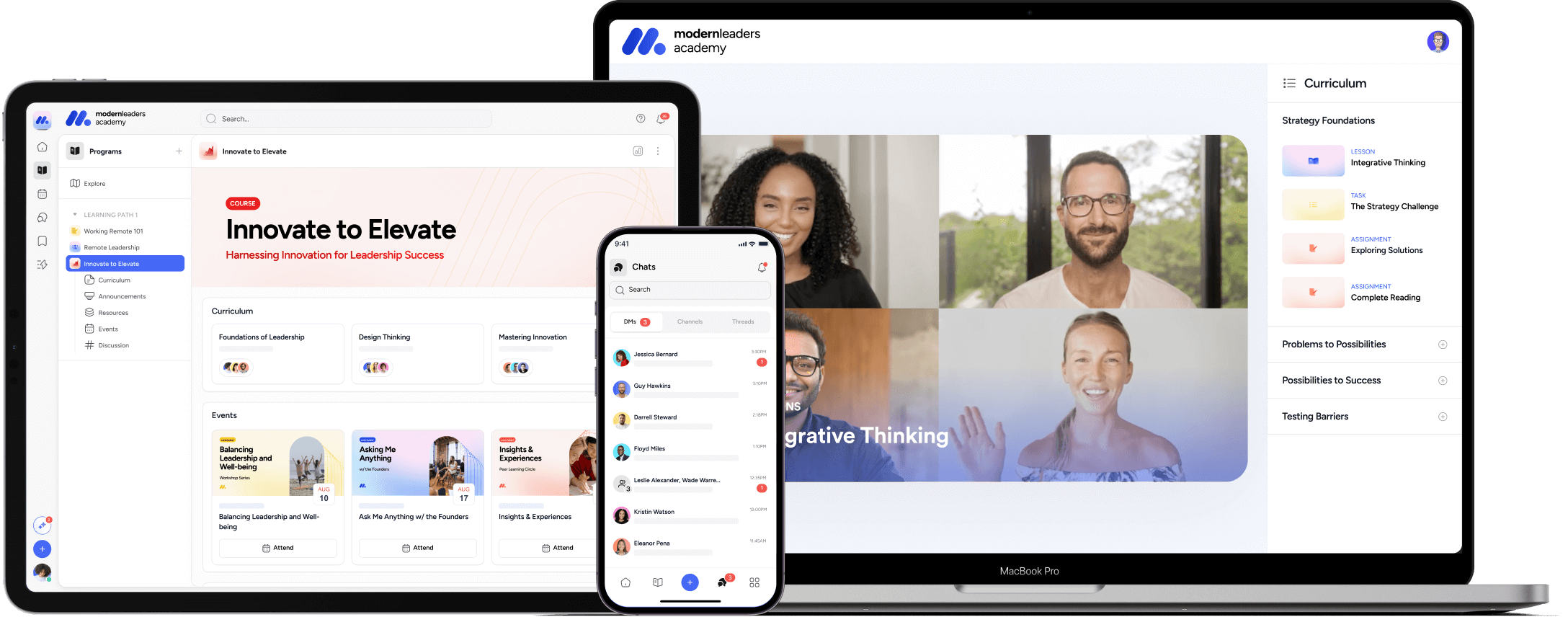
AI-driven analytics offer insights into learner progress and preferences, allowing for adaptive learning experiences that cater to individual needs. Mobile-first designs ensure that learners can access training materials anytime, anywhere, enhancing flexibility and engagement.
Modern LMS platforms also emphasize social and collaborative learning, integrating features that promote peer-to-peer interaction and knowledge sharing.
The use of virtual and augmented reality provides immersive learning experiences, creating opportunities for hands-on training in a virtual environment. Additionally, modern AI LMS platforms prioritize data security and compliance, addressing the growing concerns around privacy and ethical considerations.
In summary, the evolution of LMS has been marked by continuous innovation, leading to the development of dynamic and versatile platforms that meet the diverse needs of learners and organizations in 2026.
How do LMS systems improve online learning and corporate training?
Implementing an LMS can significantly improve training outcomes.
Major corporations have shown that corporate LMS platforms’ intuitive features enhance the effectiveness of training programs. Tracking tools in these systems allow organizations to monitor learner progress and assess training impact, ensuring learning objectives are met.
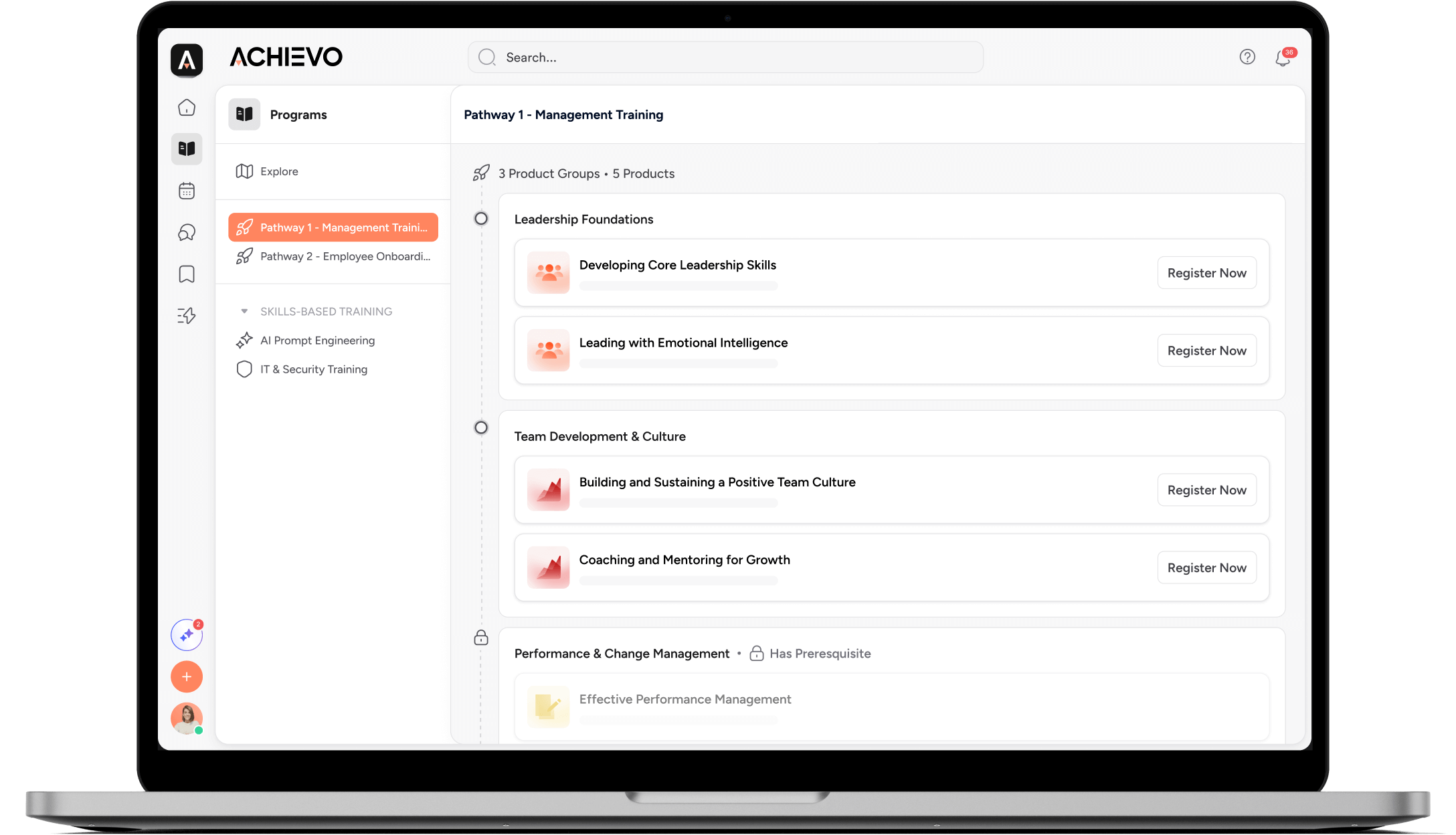
Customizable learning plans are another key benefit of LMS platforms, catering to individual learner needs to ensure training remains relevant and engaging.
LMS tools can adapt as businesses grow, scaling with small and medium enterprises to meet evolving training requirements. Additionally, platforms like Disco simplifies onboarding processes, enhancing efficiency and the overall learner experience.
Adopting an LMS offers significant cost savings by reducing the need for physical training venues and materials, allowing organizations to allocate resources more effectively.
Cloud-based LMS solutions further contribute to cost efficiency with low startup costs and scalability.
Additionally, LMS platforms facilitate compliance training, automating processes, and maintaining records, which is crucial for business growth and regulatory adherence.
How to select the right LMS for your training courses?
Selecting the right LMS requires aligning it with your organizational learning and engagement objectives.
Understanding your organization’s specific requirements can lead to efficient onboarding, skill development, and employee engagement.
Consider these key functionalities when selecting an LMS:
- Learner progress tracking
- User-friendly interfaces and customization
- Integration with other systems
Pricing models are another critical factor. Evaluate these options in the context of your budget:
- Subscription fees
- One-time licensing
Additional tips for choosing the right LMS:
- Request a free trial or demo to gain insights into the LMS functionalities before making a purchase decision.
By carefully considering these aspects, you can choose an LMS that meets your organizational needs and supports your training and educational goals.
The top 10 learning management systems - best AI LMS options 2026
From AI-driven platforms to user-friendly interfaces and open-source solutions, these are the best learning management systems that cater to various organizational needs.
Our list covers the best options to enhance your training and educational programs. Explore to find which LMS aligns with your goals and requirements:
#1.Disco LMS - the next-gen AI LMS for enterprises in 2026
Disco is among the most innovative LMS platforms, offering an AI-powered learning experience to help businesses quickly launch branded academies.
Disco’s AI automates tasks such as generating curriculums, transcribing video content, and monitoring learner progress, making it an invaluable digital assistant.
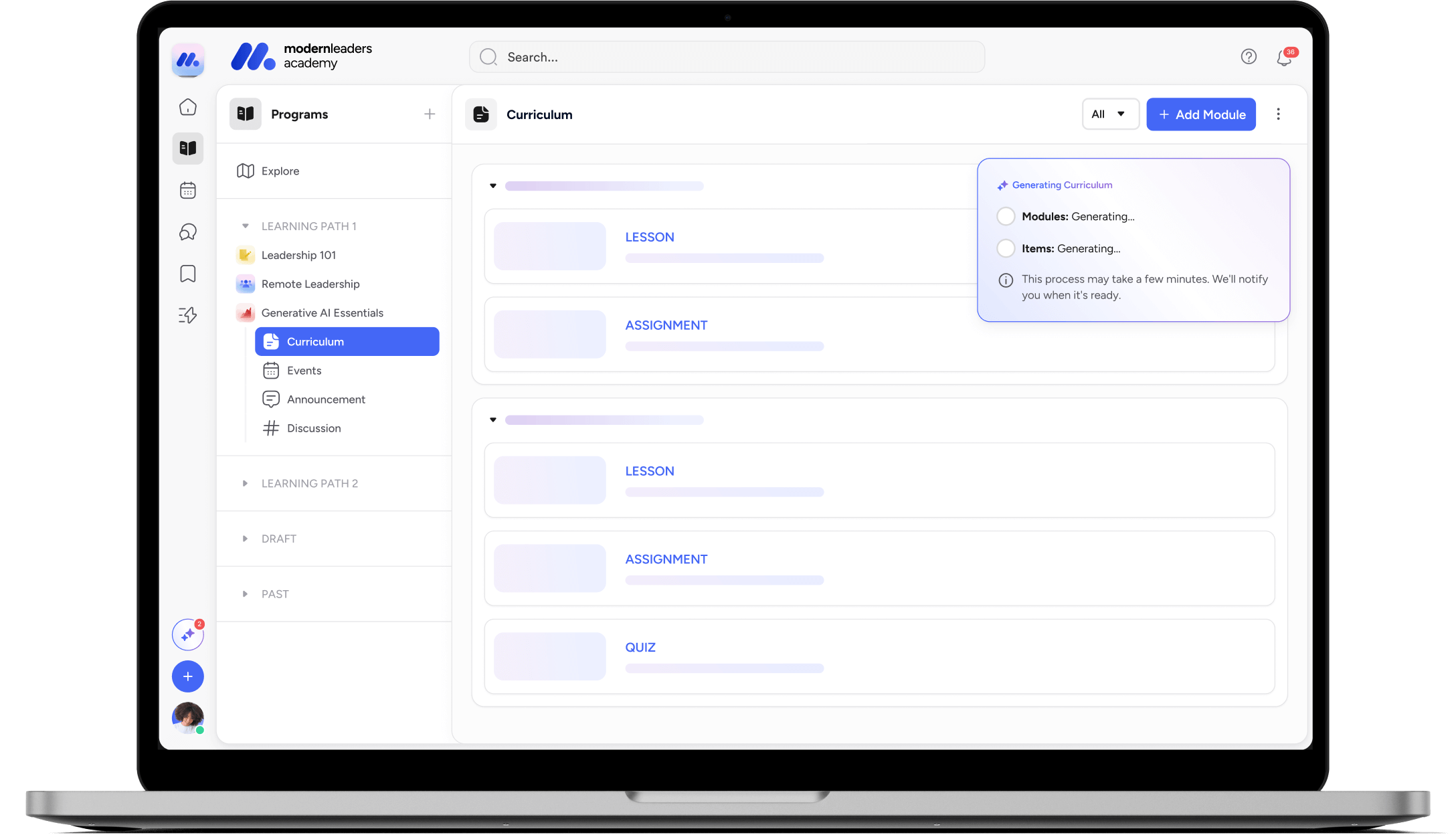
The platform’s ultra-modern, customizable interface allows businesses to create fully branded academies, fostering deeper learner engagement through cohort-based or community-based social learning.
Backed by GSV Ventures and trusted by organizations like CourseHero and Kaplan, Disco is designed for mid to large companies and small teams within larger organizations, making it a versatile choice for mission-driven learning environments.
Additionally, Disco has been recognized by Fast Company as the Most Innovative Company in Education, highlighting its cutting-edge approach to learning management.
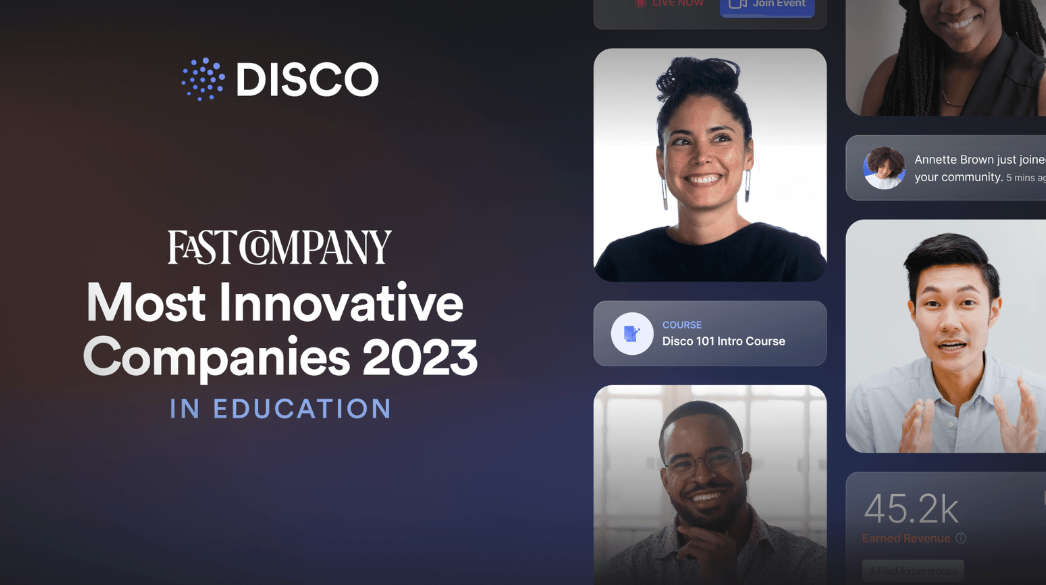
Key features:
- Automates content creation and streamlines administrative processes for rapid academy launch and scalability
- Integrates cohort-based social learning to encourage peer interaction and collaboration
- Embeds social-first features like channels, feeds, live events, and polls for real-time interaction
- The AI-powered platform automates tasks such as curriculum generation, video transcription, and reminders
- Provides robust reporting and analytics tools for real-time insights into learner progress and engagement
- Offers a customizable interface for fully branded academies and personalized learning experiences
- Intuitive drag-and-drop design for easy management of learning environments without technical expertise
- Sleek, modern interface for learners, ensuring an innovative and user-friendly experience
- Consolidates tools into one platform, integrating with popular tools like Slack and Zoom
- Built-in features for cohort-based learning, assessments, and community engagement
Disco offers enterprise pricing upon request, while its starter plan is available for organizations at $359 per month.
For those interested in exploring its features, Disco provides a 14-day free trial, allowing new users to test the platform's capabilities and determine its suitability for their learning organization.
Additionally, we highly recommend booking a demo with our team to address any questions and provide a comprehensive overview of how the platform operates.

#2. TalentLMS - ideal for employee training courses
TalentLMS is celebrated for its intuitive design, making it accessible to users of all skill levels.
A standout feature is its AI tool, TalentCraft, which revolutionizes course creation by providing intelligent recommendations and automating repetitive tasks. This AI-driven capability enhances the efficiency of developing training modules, allowing instructors to focus on content quality and learner engagement.

Its user-friendly interface, coupled with drag-and-drop functionality, streamlines course creation, allowing instructors to develop training modules quickly and efficiently.
This platform is ideal for organizations of all sizes, offering a robust set of features to enhance the learning experience.
Key features:
- AI-powered TalentCraft: Provides intelligent course creation recommendations, automating tasks and enhancing instructor efficiency
- Intuitive interface: Simplifies navigation and reduces the learning curve for users
- Drag-and-drop course creation: Enables quick and easy development of training modules
- Customization options: Offers flexibility to tailor the learning environment to specific needs
- Self-paced and instructor-led learning: Supports diverse learning styles with flexible delivery options
- Comprehensive reporting tools: Provides insights into learner progress and training effectiveness
- Integration capabilities: Seamlessly connects with various work tools to enhance functionality
- Gamification elements: Engages learners through interactive and rewarding learning experiences
TalentLMS offers competitive pricing starting at $89 per month, which includes access to its innovative AI tool, TalentCraft, enhancing the efficiency and creativity of your course creation process.
#3. iSpring Learn - best for rapid eLearning deployment capabilities
iSpring Learn stands out for its rapid eLearning deployment capabilities, enabling organizations to launch training programs swiftly, often within a single day. This makes it an ideal choice for businesses seeking to implement training programs efficiently and without delay.

The platform empowers teams with comprehensive training modules, equipping staff with essential skills and knowledge.
Key features:
- Rapid deployment: Launch training programs swiftly, often within a single day
- User-friendly interface: Navigate and manage courses with ease
- Mobile compatibility: Access training materials on mobile devices for learning on-the-go
- Robust analytics: Monitor learner progress and training effectiveness with comprehensive reports
- SCORM and authoring tools: LMS platforms often support SCORM for seamless content integration and use tools like Articulate Storyline and Adobe Captivate to create interactive training content.
iSpring Learn offers competitive pricing, starting at just $3.70 per user per month, making it an affordable choice for organizations looking to deploy training programs rapidly and efficiently.
#4. Absorb LMS - enterprise-grade AI-driven platform
Absorb LMS is a cutting-edge cloud-based learning management system tailored for large organizations, supporting user groups from 1,000 to over 10,000.
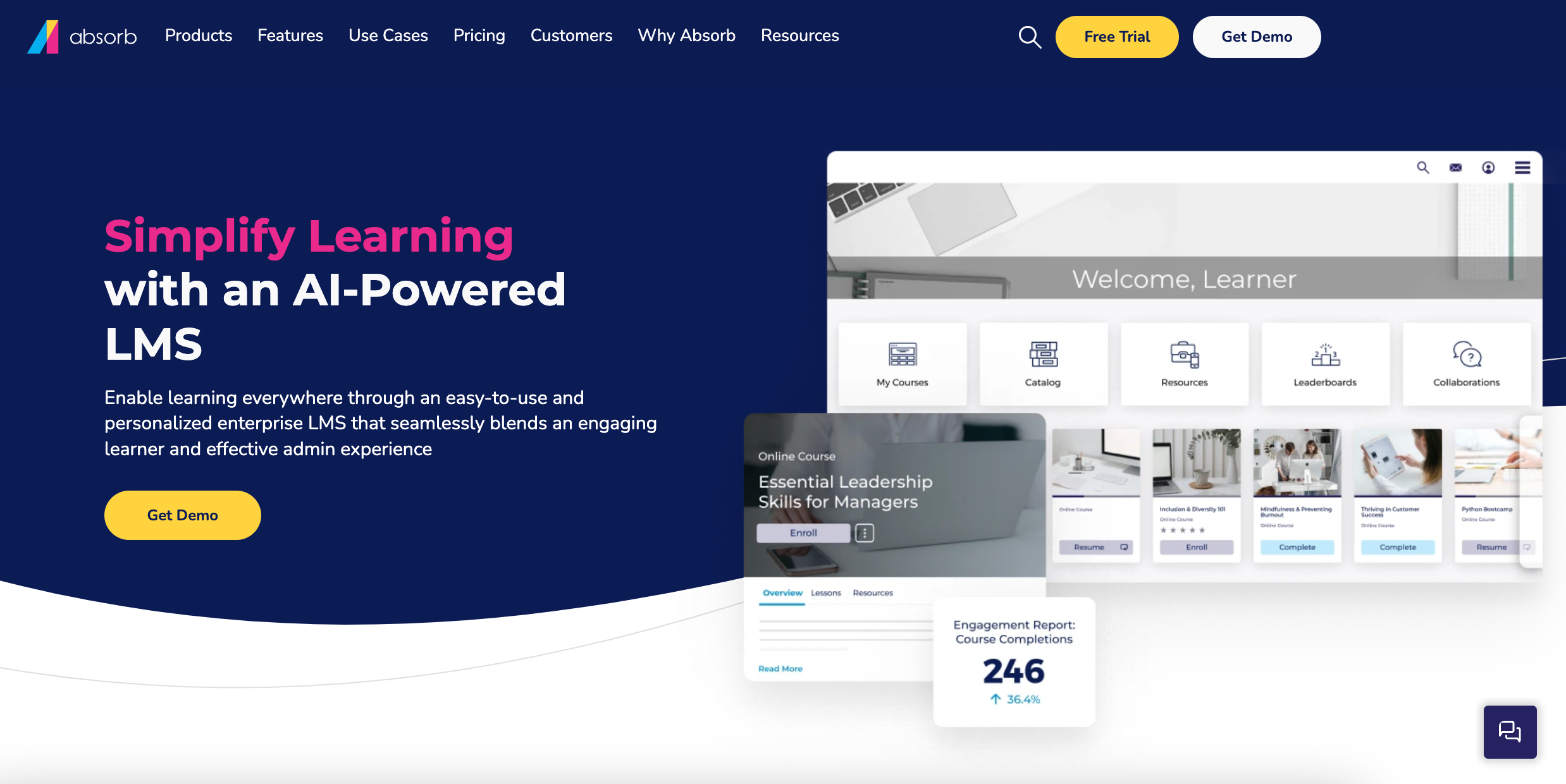
It offers a robust suite of advanced features designed to enhance training efficiency and effectiveness.
The platform's AI-driven capabilities streamline the process of managing, delivering, and tracking employee training, making it an indispensable tool for large-scale training initiatives.
Key features:
- Versatile platform supporting compliance training, employee development, and extended enterprise LMS
- Facilitates employee onboarding, sales training, partner and customer training, and mobile learning for companies of all sizes
- Extensive content customization and integration with third-party applications enhance personalized learning experiences
- Consistently high customer ratings and numerous awards highlight its reliability and effectiveness as a learning management system
Pricing is available upon request for Absorb LMS.
#5. Moodle - leading open-source LMS with AI enhancements
Moodle is a highly flexible and widely used open-source LMS, celebrated for its adaptability and robust community support.
It offers extensive customization options through numerous plugins for activities and themes, catering to diverse learning needs across educational institutions and businesses.

Moodle's AI-driven tool enhances the learning experience by providing insights into learner behavior and recommending personalized learning paths. This feature, combined with its comprehensive tracking capabilities, ensures effective management of student progress and engagement.
Key features:
- AI-powered insights: Leverages AI to analyze learner behavior and recommend personalized learning paths for improved engagement
- Customizable plugins: Offers a vast array of plugins for activities and themes, allowing extensive customization to suit various educational needs
- Robust tracking and reporting: Provides detailed tracking of learner progress and engagement, supporting comprehensive learning management
- Cost-effective solution: As an open-source platform, Moodle eliminates subscription fees, making it an economical choice for institutions and organizations
Moodle is a flexible and cost-effective open-source platform, offering extensive customization without subscription fees.
#6. Docebo - AI-powered corporate training LMS
Docebo stands out as a leading AI-powered corporate training LMS, renowned for its ability to personalize the learning journey by adapting content based on individual user behavior.
This makes it particularly suitable for larger organizations aiming to cultivate a self-directed and engaged learning culture.
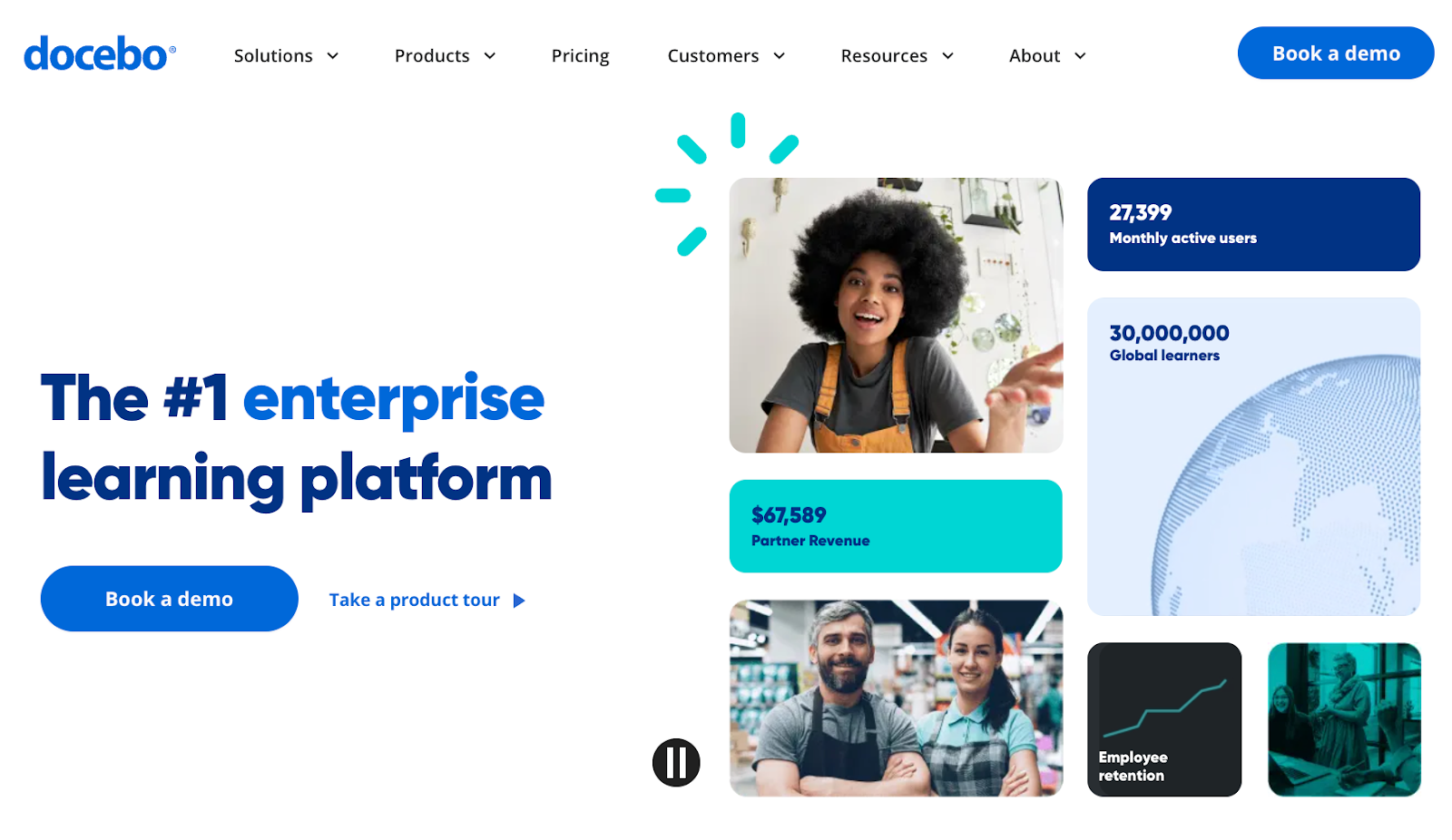
The platform's AI tool elevates the learning experience by offering intelligent content recommendations and automating routine tasks, thereby enhancing both learner engagement and administrative efficiency.
Docebo seamlessly integrates features such as social learning, Salesforce integration, mobile learning, and e-commerce capabilities, with over 400 integrations available.
By empowering employees to select their own learning paths, Docebo significantly boosts motivation and engagement, establishing itself as a top choice for corporate training.
Key Features:
- AI-driven personalization: Tailors learning experiences based on user behavior to enhance engagement
- Social learning features: Facilitates peer-to-peer interaction and knowledge sharing
- Salesforce integration: Streamlines training processes within existing CRM systems
- Extensive Integrations: Offers over 400 integrations to expand functionality and connectivity
Pricing for Docebo is available upon request.









